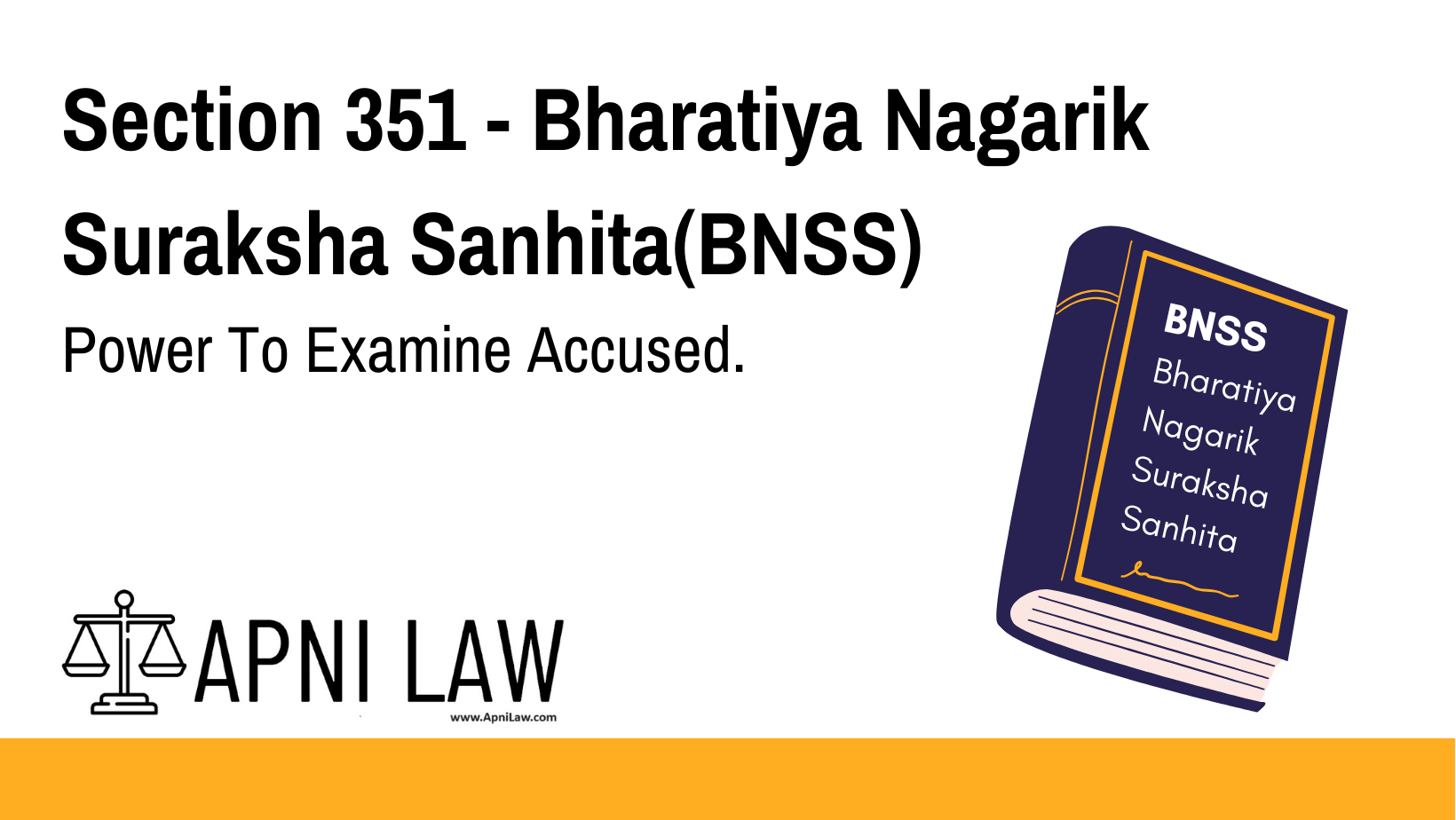Code – Section 351 BNSS
351. (1) In every inquiry or trial, for the purpose of enabling the accused personally to explain any circumstances appearing in the evidence against him, the Court—
(a) may at any stage, without previously warning the accused, put such questions to him as the Court considers necessary;
(b) shall, after the witnesses for the prosecution have been examined and before he is called on for his defense, question him generally on the case:
Provided that in a summons-case, where the Court has dispensed with the personal attendance of the accused, it may also dispense with his examination under clause (b).
(2) No oath shall be administered to the accused when he is examined under sub-section (1).
(3) The accused shall not render himself liable to punishment by refusing to answer such questions or by giving false answers to them.
(4) The answers given by the accused may be taken into consideration in such inquiry or trial and put in evidence for or against him in any other inquiry into, or trial for, any other offense which such answers may tend to show he has committed.
(5) The Court may take help from the Prosecutor and Defense Counsel in preparing relevant questions to be put to the accused, and the Court may permit filing of a written statement by the accused as sufficient compliance of this section.
Explanation of Section 351 BNSS
Section 351 of the Bharatiya Nyaya Sanhita, 2023 (BNSS) details the procedure for the examination of the accused in a trial or inquiry. This provision ensures that the accused has an opportunity to personally explain any evidence against them.
Key Provisions of Section 351 BNSS
- Right of the Court to Question the Accused
- The Court can question the accused at any stage without prior warning.
- Before calling the accused for defense, the Court must question them regarding the case.
- No Oath Required for the Accused
- Unlike witnesses, the accused is not required to take an oath before answering questions.
- No Punishment for Refusal to Answer
- The accused cannot be penalized for refusing to answer or for giving false answers.
- Answers Can Be Used as Evidence
- Any response given by the accused may be used in the same case or in future legal proceedings.
- Assistance from Prosecutor and Defense Counsel
- The Court may seek assistance from legal counsel in framing relevant questions.
- The Court may allow a written statement from the accused instead of verbal questioning.
Illustrations
Example 1: Court’s Right to Question at Any Stage
During a fraud trial, the judge asks the accused about certain transactions without prior warning. This is permissible under Section 351(1)(a).
Example 2: Written Statement Instead of Oral Examination
In a case where the accused cannot attend due to medical reasons, the Court allows the filing of a written statement as a valid response under Section 351(5).
Example 3: No Oath for Accused’s Statement
An accused person provides a statement explaining their role in a crime. Since no oath is required, their statement is recorded without taking an oath under Section 351(2).
Common Questions and Answers on Section 351 BNSS
1. Can the accused be forced to answer questions from the Court?
No. Under Section 351(3), the accused is not liable for punishment if they refuse to answer.
2. Can the accused’s answers be used against them in another case?
Yes. Section 351(4) states that answers can be used as evidence in future cases.
3. Why is no oath administered to the accused?
To protect the accused from self-incrimination and to maintain fairness in the trial process.
4. Can the accused submit a written response instead of oral questioning?
Yes. Under Section 351(5), the Court may allow a written statement as a valid response.
5. What happens if the accused lies while answering?
There is no direct punishment under this section, but false statements may impact the case or be used as evidence in future proceedings.
Conclusion
Section 351 BNSS ensures a fair trial by allowing the accused to explain their side without coercion or punishment for refusal. The provision also permits written statements, making the process more flexible.
For more expert legal insights, visit ApniLaw! 🚀








